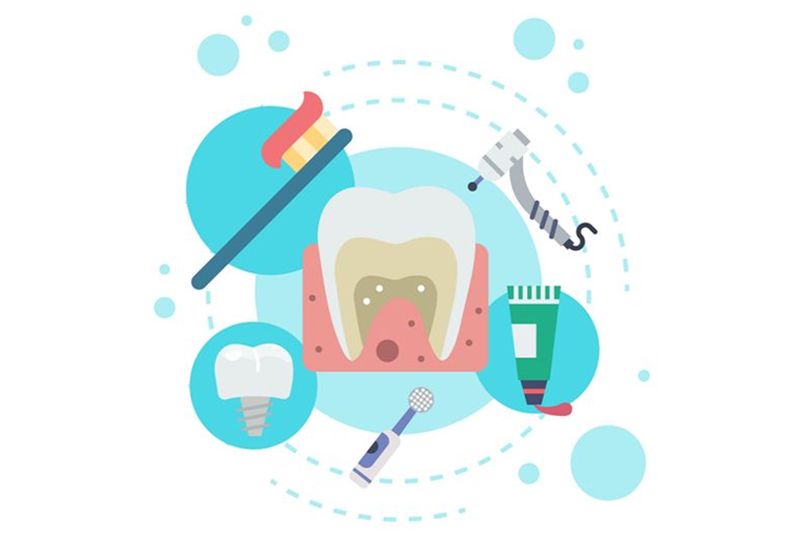Do you feel self-conscious every time you smile? Do you think people avoid you because you have bad breath? Are you currently experiencing painful gums?
Your oral health is as significant as your overall health. Having a dazzling smile and beautifully aligned teeth will not be enough when you ignore your oral health needs. What if underneath that smile lies several decayed teeth?
To maintain healthy teeth, gums, tongue, and mouth, incorporate a few simple dental hygiene practices. Find out what you need to do to keep your oral health in check.
Why Take Care of Your Teeth, Gums, and Mouth
As outlined above, your oral health affects your overall health. Dental experts also recommend attending a checkup at the onset of your first tooth.
When you have a healthy oral state, you can eat well, improve your focus, boost your social skills, and feel more confident.
If you want to make sure you’re doing the right thing to protect your teeth and gums, check out these 5 tips dental health professionals consistently advise to patients (and nonpatients).
Expert Oral Health Tips
1. Brush or floss regularly
Brushing your teeth twice daily is the easiest and simplest form of a dental health check. Everyone must perform this to remove plaque and bacteria, keep teeth white, maintain fresh breath, and prevent gum disease. Brushing, therefore, is another form of self-care.
Additionally, it will only be effective if you apply the correct technique. Dental professionals recommend brushing every tooth’s front, back, and top with small circular motions.
Dental floss or water flossers are like a toothbrush to prevent bad breath and effectively eliminate germs. Flossing will significantly help remove food debris trapped in between your teeth. Again, like brushing, dental health professionals recommend flossing gently to avoid gum injuries and the occurrence of cavities.
Lastly, buy toothbrushes with soft bristles and choose fluoride toothpaste to act as a protective barrier for your teeth.
2. Attend regular dental checkups
A dental checkup in a dental office in Oshawa, for example, should be part of your oral care routine. Experts recommend visiting a dentist every 6 months or depending on how often your healthcare professional requires to see you.
At this stage, anything can happen. A dentist may recommend removing the decayed tooth and requesting an immediate dental implant. Some will even suggest getting dentures in Sarnia. For not-so-severe issues, your dentist might only require you to schedule regular teeth cleaning appointments.
Visiting a dental professional will help you avoid gum issues and other teeth diseases. They are also capable of spotting areas that have potential problems. As a result, they can quickly recommend necessary measures to prevent bacteria from spreading throughout your teeth.
3. Watch what you eat
Your diet is also critical. Carbohydrate-, sugar- and acid-filled foods are the chief causes of plaque buildup. When left unattended, it can lead to tooth decay, gum disease, and bad breath.
If you ignore your food intake, it might result in cavity formation. Experts recommend you eat fresh, crunchy, and calcium-rich food to get healthy fibre and minerals that will help strengthen your teeth. Some foods that promote strong teeth and jawbones are low-fat or fat-free milk, cheese, soymilk, eggs, fish, and lean meat.
4. Establish good habits
Be steadfast in following your routine. This will help you get rid of bad habits that cause mouth and tooth discolouration, gum disease, and stinky breath. Smoking is one example. It can inflame the salivary gland openings found on the roof of your mouth. Experts attest that people who quit smoking show improved oral health.
Dental professionals also advise limiting your alcohol intake and drinking a considerable amount of water instead. Drink water after every meal. On top of brushing, this will help wash out the stains and smell of sticky foods and beverages.
5. Beware of pain
Take note of any pain you may be experiencing, whether it’s a result of solid food intake or incorrect brush strokes. Sweets can cause toothaches if they have residues trapped within the teeth, particularly when brushing techniques are ineffective. Do not ignore the tooth or gum pain, as it can lead to major oral health issues.
You can visit your family dentist or a dental surgeon in Oakville to help you determine the causes of your pain and get effective solutions.
Maintaining excellent oral health is not a one-day task; rather, it is a lifetime commitment. It’s crucial to follow your dental care routine to take care of your gums, teeth, and tongue and prevent major problems. Consulting a dentist is especially vital so that you won’t leave these problems undetected.
By brushing daily, using mouthwash, attending dental appointments, and avoiding habits that can harm your oral health, you can keep your teeth and gums healthy. Always think of dental checkups as part of your self-care routine. If you’ve not yet started your oral care journey, do it now before any dental issues occur.
Article Submitted By Community Writer




